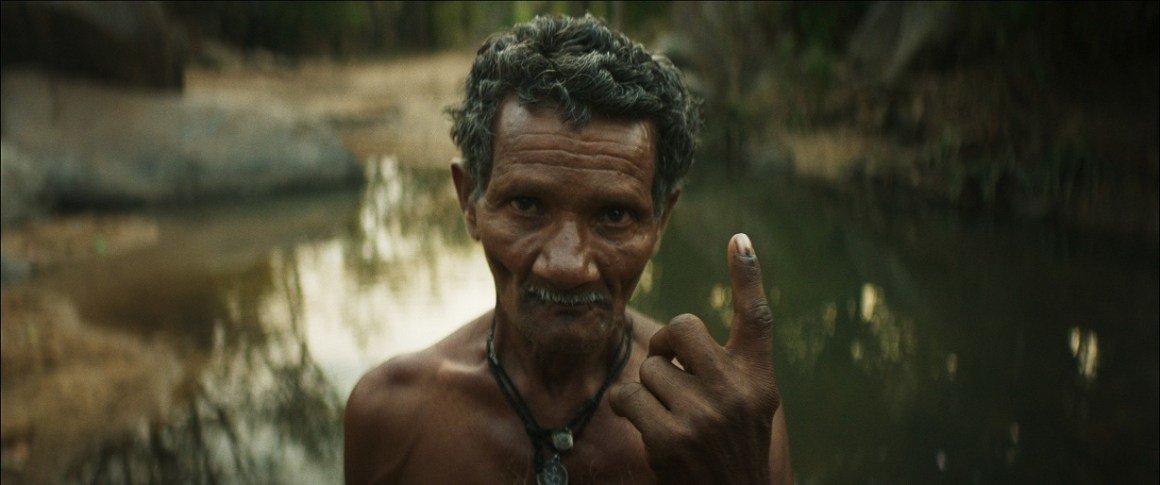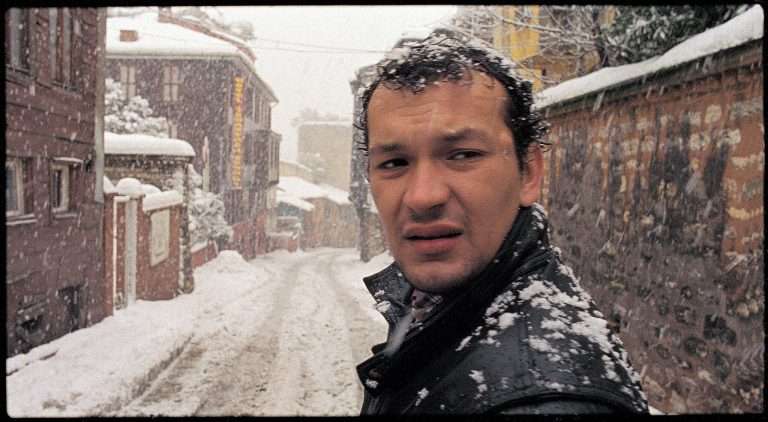“We are like toys – someone presses our “ON” button or turns a key in our backsides, and we Santhals start beating rhythms on our Tamak and Tumdak or blowing tunes on our Tiriyo while someone snatches away our very dancing grounds. Tell me, am I wrong?”
– The Adivasi Will Not Dance, Hansda Sowvendra Shekhar.
At first sight, “Newton” (2017) will remind you of “Forrest Gump.” It will seem like the story of an idealistic and compulsively disciplined man caught in the cobwebs of a system that vows to change you before you can dream to change it. But Newton is not just an irrefutable innocent character whom you will adore at first, empathize with later, sympathize just after, and forget once the credits start rolling. He is an embodiment of ideologies and situations. His unbiased eyes are lenses that let us peep into the black holes in the fabric of society, which undress the facade of democracy as a universal right.
Democracy is still a privilege for many communities, which they can neither understand nor afford. Empty stomachs and hands rotten from overwork do not care to choose between political leaders and ideologies because, for them, every government is just the same. Another let-down, another false promise, and another eternal waiting till the outcomes trickle down to them.
The film’s battleground is Dandakaranya, Chattisgarh, where Naxalites continue their violent fight against a government they are disillusioned with while the paramilitary shoots their demands down, one by one—or rather, offers monetary compensation for giving them up. But whether money makes the insurgent surrender or merely marginalize the people further is left dubiously unanswered, subtly clarifying that when the state force is in charge of anything, it’s often just the numbers that matter.
A man armed with a gun and a purpose always runs the risk of turning into a monster, which, in this case, describes both the parties involved. The anatomy of this endless feud between the militants and the military is explained with the simple use of Newton’s Laws of Motion, actions invoking equal but opposite reactions.

However, in this tug of war, the rope being pulled from both sides is tied around the very throat of the natives. The Adivasis are metaphorically compared to a chicken, which is chased, beheaded, and then cooked into a delicious story. When Newton thinks his bullet of reason can cut these inconsistencies apart, his colleague offers him kind advice, “No big things are done within a day.
This forest had taken years to grow”. The inexplicably pitiful sight of a tribal man standing in the voting booth and staring cluelessly at a ballot he does not understand lights up resolve in Newton’s heart, more inextinguishable than a forest fire in the Sukma region. A community that has never heard the name of the nominated candidates does not know what to do with their vote. They ask out of habituation, with intimidated eyes and shaky voices, “How much will we be paid for this?”
The film climaxes in one scene, where Newton is possessed by his obsession with commitment and honesty. He holds the paramilitary officers at gunpoint, literally and figuratively, for the smooth disposal of his simple duty of letting people vote. This unprecedented momentary split-personality disorder of our familiar noble lead perfectly reflects the image of every man who is overpowered by his pride in his integral principles. Those officers burnt villages and made these Santhals refugees on their own land. Those Maoists cannot distinguish their own from their others anymore. The elites debate the positive and negative repercussions of democracy every day on news channels without any knowledge about its penetration into ground reality. We civilians, inefficient and corrupt, are the biggest protesters against crime but also silent participants and perpetrators.
Newton (2017) ends like a regular day ends in the forests of Chhattisgarh. With a strange silence that only the innocuous and rightful cicadas dare to spoil and a bittersweet smell of both uncertainty and hope. Uncertainty, because our lives are nothing but a prolonged phase of suspense where our moments of happiness are compromised owing to the fear of a devastating future. But hope of a revolting fruit to fall, yielding to the gravity of circumstance and finally proving that the laws of nature are the same for every human being, irrespective of caste, status, and community.
Newton (2017) Links: IMDb, Wikipedia

![Lair [2021] Review: Horror Lies in Subjecting Yourself to This Film](https://79468c92.delivery.rocketcdn.me/wp-content/uploads/2021/11/The-feet-3_1-768x566.jpg)


![The Age of Blood [2018]: ‘NYAFF’ Review](https://79468c92.delivery.rocketcdn.me/wp-content/uploads/2018/07/The_AGE_OF_BLOOD_NYAFF_HOF1-768x432.jpg)

![NET [2021] Review – A Black Mirror-ish Attempt, Marred by Its Own Clunky Execution](https://79468c92.delivery.rocketcdn.me/wp-content/uploads/2021/09/NET-ZEE5-1-768x479.jpg)